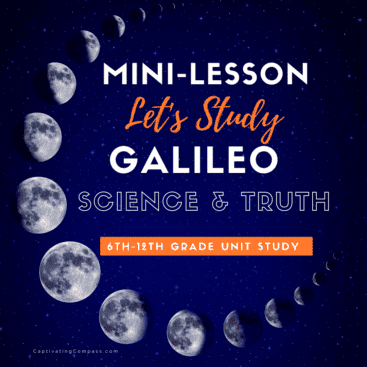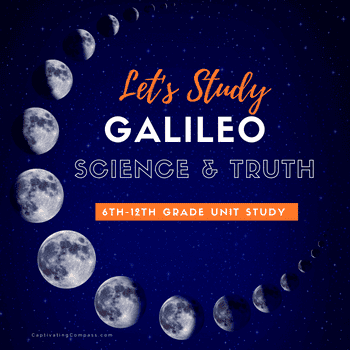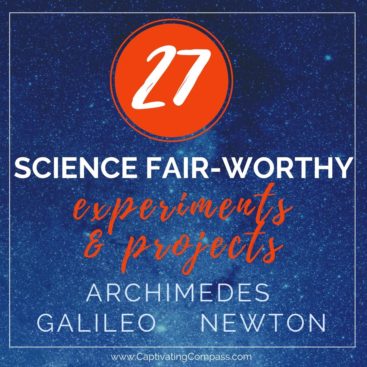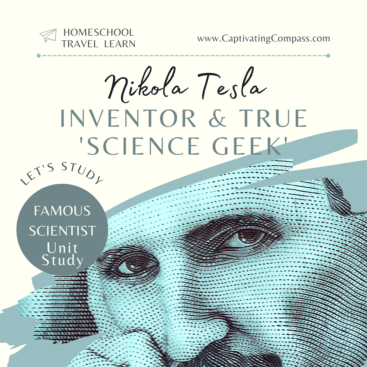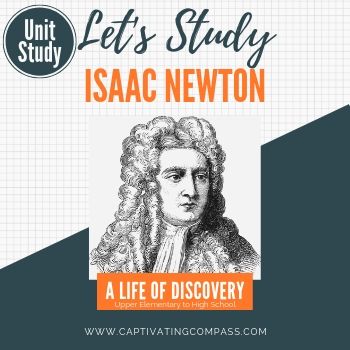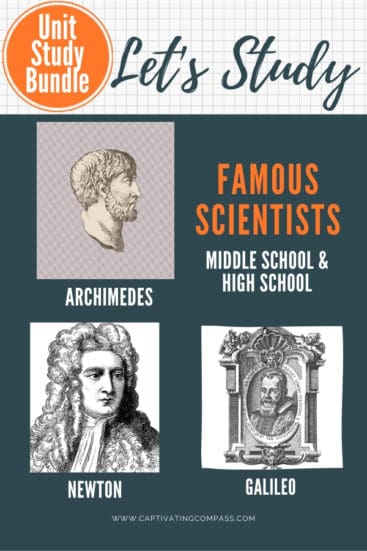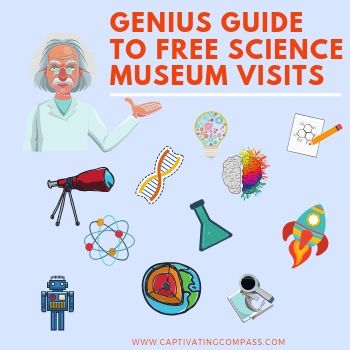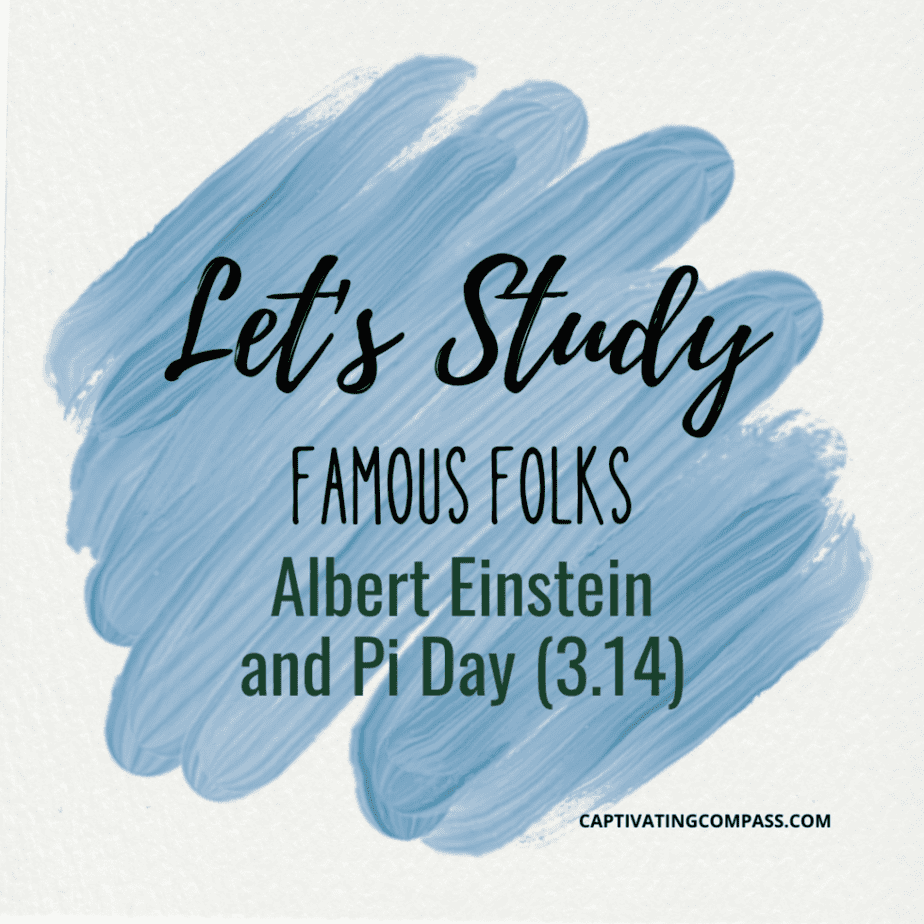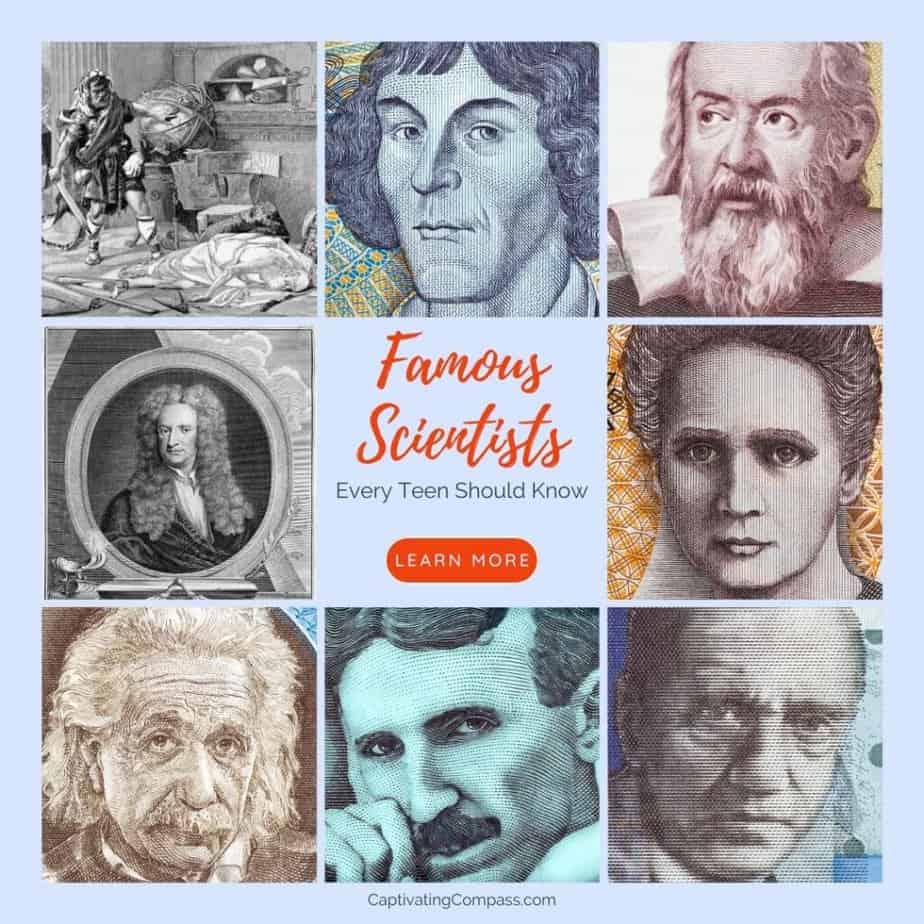
Table of Contents
How Many Famous Scientists does your Teen Know?
How often have you heard of a famous scientist? You probably know the names of some popular scientists, like Albert Einstein or Marie Curie. But what about the lesser-known scientists that made significant contributions to our world? So get ready for a journey through time and science as we explore famous scientists every teen should know and their incredible accomplishments!
Getting Started with Famous Scientists
Throughout history, many influential scientists have made breakthroughs and momentous discoveries. They have shaped our understanding of the world and pushed the boundaries of what was believed to be possible. Famous scientists and their contributions to science can provide insight into the nature of our universe and the progressive development of knowledge over time.
First, let’s look at some of the most famous scientists in history that every teen should know. Learn about the accomplishments of figures such as Albert Einstein, Isaac Newton, Charles Darwin, Marie Curie, Nikola Tesla, Jane Goodall, Stephen Hawking, and more.
Start with a brief overview of each famous scientist’s achievements as well as an in-depth look at the life story of several famous scientists from the Pre-19th Century era. Discover how they left their mark on humanity through groundbreaking discoveries and the use of the scientific method to propel our collective knowledge into increasingly sophisticated realms by laying the groundwork for scientific discoveries for years to come.
Don’t miss your Albert Einstein & Pi Day (3.14) Mini-Lesson. It’s at the end of this post.
Historical Figures in Science
There have been many great scientists who have shaped the way we think of the world today and throughout history. While the stories of their work are fascinating, it’s also important to remember that many of these scientists had personal struggles and obstacles to overcome during their lifetimes. From some of the first scientists, like Copernicus and Galileo to Marie Curie and Alan Turing, these famous historical figures in science have left a profound impact on our culture, history, and understanding of the natural world.
Nicolaus Copernicus (1473 – 1543) is generally considered to be one of the first modern scholars in astronomy. He is best known for his geocentric model of the universe, which proposed that all planets revolve around a stationary Sun for which he provided observational evidence.
Galileo Galilei (1564 – 1642) was an Italian scientist who laid the foundation for modern scientific inquiry. Galileo made pioneering contributions in astronomy such as constructing his own telescope, discovering numerous stars, and uncovering four moons orbiting Jupiter as well as developing important theories like falling objects having a constant acceleration irrespective of their mass.
The life of Galileo is an exciting one to study. From being employed by the Medici family to being excommunicated from the Catholic church for his discovery and belief in a heliocentric universe, rather than a geocentric universe, the study of Galileo is an action-packed adventure.
Without Galileo:
- Isaac Newton would never have completed his three laws of motion,
- David Scott would never have dropped a feather and a hammer on the moon to test Galileo’s theory about falling objects.
- You wouldn’t have to be writing so many lab reports proving your hypothesis with sound data and results.
There is much to learn about this amazing inventor and mathematician and his incredible contribution to science. So we will just scratch the surface here and provide you with some ways to extend your learning and make it fun all at the same time.
Marie Curie (1867 – 1934) was a Polish-born physicist who revolutionized our understanding of radiation with her discoveries about radioactive elements like radium and polonium. For her pioneering work, she received two Nobel Prizes in physics and chemistry, making her the first woman ever to win a Nobel Prize—and one of only four people ever to receive two Nobel Prizes in separate fields.
Learn more about Marie Curie and other famous people in history born in November.
Alan Turing (1912 – 1954) was an English mathematician whose research laid the groundbreaking work for theoretical computer science and contributed excellent ideas about artificial intelligence from early machine calculations to later systems capable of performing logical functions fed by algorithms inputted via programs. He developed groundbreaking theories about computation complexity which laid foundations for modern computing still heavily used today.
Nobel Peace Prize Winners in Science
The Nobel Prize in Science is one of the most prestigious scientific awards in the world, given to outstanding researchers, inventors, and innovators who have made a significant contribution to science. The prize, established in 1895 by Alfred Nobel and awarded since 1901, recognizes well-known scientists from all over the world whose work has advanced humanity’s understanding of their field.
Nobel Prize winners are chosen each year by three separate organizations — one for each category of Nobel Prize: Chemistry, Physics, Physiology or Medicine, and Literature. Each organization is responsible for selecting recipients based on their contributions to the respective field. Since 1901, hundreds of men and women have been honored with prizes for their scientific work and achievements in chemistry (71), physics (119), physiology or medicine (95), and literature (107).
Notable Nobel Prize winners in science include:
- Marie Curie (1903; first female recipient),
- Sir Alexander Fleming (1945; his discovery of penicillin enabled effective treatments for bacterial infections)
- Ernest Rutherford (1908; his research on nuclear particles fundamentally altered our understanding of atomic structure)
- Francis Crick and James Watson (1962; discovery of DNA structure that serves as the basis for genetic analysis) and
- Tu Youyou (2015; discovery of artemisinin as an effective treatment against malaria).
Women in Science
Throughout history, women in science have made immense contributions to the understanding of the world around us. From Marie Curie’s pioneering studies in nuclear physics and her Nobel Prize-winning works to Rachel Carson’s groundbreaking research in ecology, these female scientists have pushed the boundaries of our knowledge.
Here is a list of some prominent women who have shaped the field of science:
Rachel Carson (1907–1964) was an American biologist, Marine biologist, and environmentalist, Rachel Carson was a brilliant scientist whose career focused on linking advances in science to everyday life. Her 1962 book Silent Spring is said to be largely responsible for launching the modern environmental movement.
-Mary Anning (1799–1847) was an English fossil collector and paleontologist, Mary Anning made incredible contributions to paleontology and the natural sciences despite not having advanced formal training. She found numerous fossils of prehistoric creatures during her brief life and received recognition from renowned biologists like Charles Darwin.
-Katherine Johnson (1918–2020 was an American mathematician. She was one of several African American women known as “human computers” at NASA’s Langley Research Center. She made major contributions to space exploration during the 20th century. One of her greatest achievements was calculating trajectory data for Apollo 11’s flight path from Earth to the moon.
Ada Lovelace (1815–1852) was an English mathematician. She created “the first algorithm intended for use on Charles Babbage’s Analytical Engine”. She worked closely with Charles Babbage on this engine, which is considered one of the first computers ever built. It predated modern computing by over 100 years!
Modern Famous Scientists Every teen should know
In the modern era of science, technology, engineering, and mathematics (STEM), there are a growing number of contemporary scientists who have made significant contributions to their fields. These pioneering minds have helped push human understanding further in areas such as quantum physics, biomimicry, medical technology, and more. Here is a brief overview of some of the most famous modern scientists:
Stephen Hawking (1942-2018) was a Physicist and cosmologist known for his work in theoretical physics and black holes. He was the Lucasian Professor of Mathematics at Cambridge University from 1979 to 2009.
Nikola Tesla (1856-1943), the inventor, was an ethnic Serbian, born in Croatia who eventually moved to the United States and became an American citizen. He was an inventor and electrical engineer who developed AC electricity after experimenting with what he thought to be more dangerous DC currents. He invented alternating current (AC) motors, radio transmitters, fluorescent lighting, X-ray technology, remote control devices, and radar systems.
His work led to significant advances in electric power transmission and distribution, radio communication, robotics, computers, and many other fields.
Albert Einstein (1879-1955) was a German physicist who is widely considered to be one of the most influential scientists of all time. He developed the general theory of relativity which forms the foundation for much of modern physics. He was also awarded a Nobel Prize in Physics (1921).
Linus Pauling (1901-1994) was an American chemist and peacemaker perhaps best known for his groundbreaking research on molecular chemistry and molecular biology. He received two Nobel Prizes; one in Chemistry (1954) and one for Peace (1962).
Jane Goodall (b 1934) was a British primatologist famous for her 45-year study on chimpanzees at Gombe Stream National Park which revolutionized our understanding of chimpanzees’ behavior and their use of tools. She is a UN Messenger of Peace with a special focus on climate change.
Contributions of Famous Scientists Every Teen Should Know
The field of sciences has seen tremendous progress and development over the past few centuries, largely due to the contributions of some of the most renowned scientists. Famous scientists such as Albert Einstein, Charles Darwin, Marie Curie, and Sir Isaac Newton have made hugely influential discoveries that are widely known today.
Albert Einstein developed his famous theories on relativity and mass-energy equivalence which revolutionized our understanding of time and space. His complicated theories have incited numerous debates among physicists and some have even postulated that his equations can apply to other areas such as economics or psychology.
Learn more about Einstein and other famous people in history born in March.
Charles Darwin is best known for his theory of evolution by natural selection. His theory states that all species evolve over time in order to adapt to their environment. His work inspired countless scholars who have studied evolutionary biology for years, crafting hypotheses about how living organisms can be classified according to their similar characteristics.
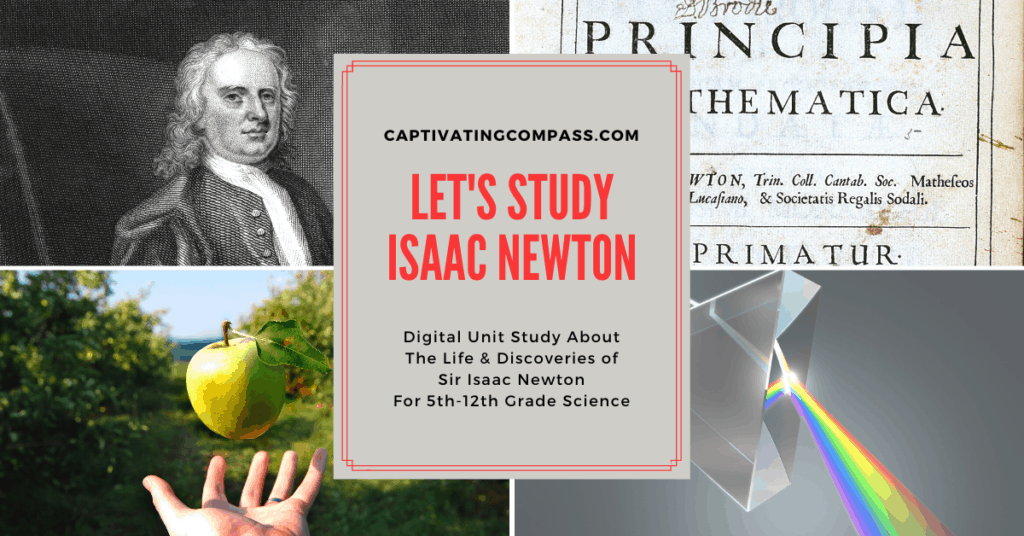
Isaac Newton’s works are widely regarded as three revolutionary physics books which were published during his lifetime – Philosophiae Naturalis Principia Mathematica (1687), Opticks (1704), and Chronology (1728). These books laid the foundations for Modern Physics by introducing concepts such as gravity, calculus, inertia, buoyancy forces, and refraction laws among others.
Famous Scientist Resources: Isaac Newton
The influence these famous scientists have had on science is impossible to measure but it certainly runs deep into our understanding of the world around us today. From physics to chemistry, their discoveries changed the way information was gathered and applied by researchers around them so many centuries ago – shaping our modern society into what it is today!
Impact of Scientists on Society
Throughout history, famous scientists have made an incredible impact on society and significantly changed the way the world functions. Scientists such as Archimedes, Galileo, Albert Einstein, Nikola Tesla, Marie Curie, and Isaac Newton laid the groundwork for new discoveries and gave us a better understanding of how nature works. Their achievements in areas like physics, mathematics, and chemistry have made our lives more comfortable and even allowed us to travel to space.
The contributions of scientists have enabled us to understand reality more deeply and helped us to envision all that is possible in terms of human improvement. From electricity found from renewable energy sources, treatments of diseases, finding cures for illnesses, and even producing inventions like cars and airplanes – these are just a few practical examples of how researchers and inventors continue to shape today’s world.
The Importance of Famous Scientists every teen should know
The importance of these famous scientists is not limited to their physical contributions. They are also advocates for progressive change in our environment, public health, national security, and other global topics. From creating awareness about climate change to helping find equitable solutions for people living in extreme poverty — scientists not only make tangible contributions but also lead campaigns raising their voices against unethical practices such as animal testing or deforestation.
In short, the immense influence that scientists have on society cannot be overstated. Their contributions range from improving our quality of life to providing solutions that better humanity as a whole. Whether it is through initiating movements or by discovering formulas that solve problems previously thought impossible; science and scientific research has always kept advancing humanity forward.
-
Product on sale
 Scientific Method Lab SheetOriginal price was: $2.00.$0.00Current price is: $0.00.
Scientific Method Lab SheetOriginal price was: $2.00.$0.00Current price is: $0.00.
Inspirational Stories of Scientists
The scientific community is made up of some of the most brilliant and amazing minds ever to live on this earth. These scientists have made incredible contributions to our understanding of the world and have provided us with unprecedented perspectives on the nature of life and reality itself. They have pushed us to explore more deeply and think more critically, inspiring us all in one way or another.
Their journeys are often remarkable stories, full of triumphs and struggles that demonstrate how talent, ingenuity, hard work, dedication, and tenacity can lead to inspiring results. From ancient Greek philosophers to modern-day inventors, their stories remain incredibly powerful in motivating others to go beyond what is known and break through barriers that stand in the way of new discoveries.
Learn about the remarkable lives and replicate many of the greatest scientific experiments in your homeschool as you study famous scientists every teen should know. Explore Archimedes and his circles; Galileo Galilei’s revolutionary insights into astronomy; Isaac Newton’s astounding discoveries about gravity; Albert Einstein’s revolutionary exploration into quantum mechanics; Nikola Tesla’s transformative work with electricity. Each story is an inspiring reminder that anything is possible with determination, passion, and perseverance.
Homeschool Resources about Famous Scientists every teen should know
you may also enjoy
- Printable Cornell Note Taking Template | High School

- Astronomy Curriculum for High School: A Faith-Based Guide

- Famous Scientists Every Teen Should Know

- Einstein Museum | Bern With Kids

- Nikola Tesla Facts for Kids: Inventor & Science Geek
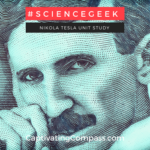
- Middle School Science Curriculum Homeschool: Archimedes Unit Study



